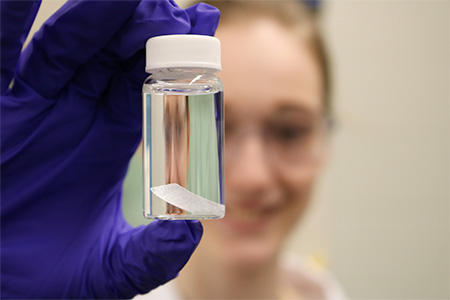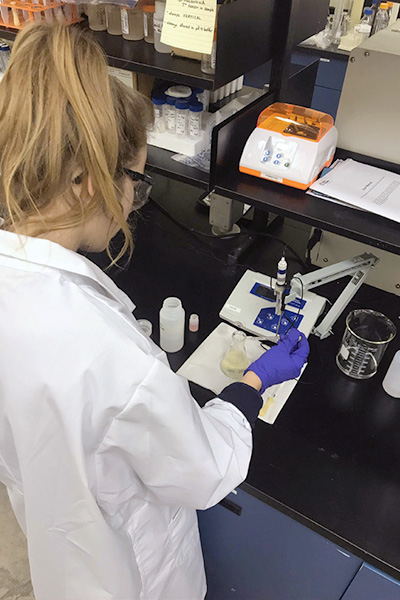Green Engineering researchers in the Department of Chemical Engineering work on designing and manufacturing processes and products that efficiently and economically minimize pollution, promote sustainability, and protect human health. Research efforts in this area include sustainable energy sources, processes, and products, as well as environmental remediation.
Existing strengths in Green Engineering include the development of fuel cells for electricity production, biofuels produced from organic waste and the development of water-based polymerization processes. Other strengths include the modification of natural biopolymers with synthetic polymers to produce new commodity materials, bioremediation of environmental pollutants in contaminated soil and groundwater, and the biological production of biodegradable thermoplastics and thermosets (see Figure 1).
Emerging strengths include the development of economically viable, solvent-free, and environmentally friendly processes that will result in fully biobased products. The goal is to ensure that these well-engineered, sustainable, ecofriendly products will gain widespread consumer acceptance, and that they will replace single-use plastics in the automotive sector, and in packaging and foam processing.
Other emerging strengths in Green Engineering are related to the bioaccessibility of rare earth elements, arsenic, and hexavalent chromium from existing contaminated sites (see Figure 2), the use of carbon dioxide switchable polymers for water treatment, and efficient electrochemical processes.
Members of the Green Engineering group have received the 2019 Natural Sciences and Engineering Research Council of Canada (NSERC) Brockhouse Prize for Interdisciplinary Research in Science and Engineering, as well as the 2018 Canadian Green Chemistry and Engineering Award. Among the group’s members are fellows of the Alexander von Humboldt Foundation, the Chemical Institute of Canada (CIC), the Canadian Academy of Engineering (CAE), and the Engineering Institute of Canada.

